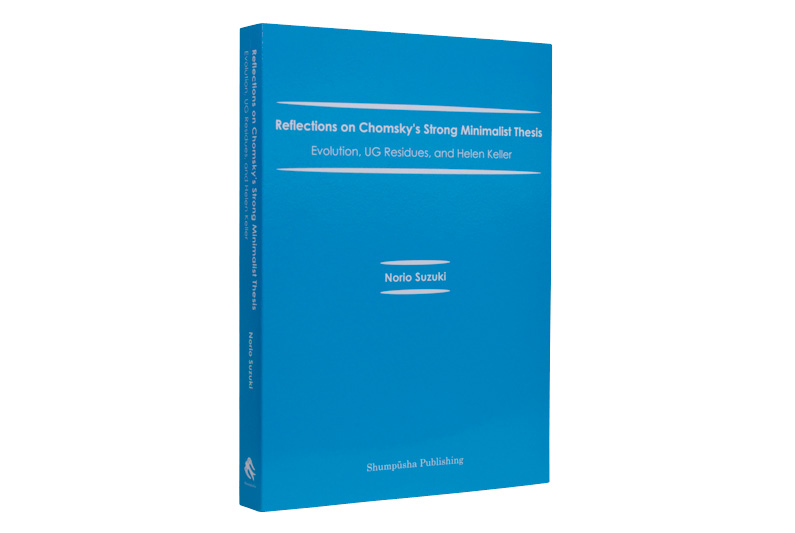
Reflections on Chomsky’s Strong Minimalist Thesis
Evolution, UG Residues, and Helen Keller
- Norio SUZUKI / 2007.7
- JPY 7,619 / A5 size, paperback, 376 pages
Given the conceptual shift involved in evolutionarily viewing UG as the object of explanation, not as an explanatory tool any more, and Chomsky’s strong minimalist thesis as the central concept of minimalist theorizing, this book attempts to explore its implications and consequences in several empirical domains such as acquisition/learnability, narrow syntactic derivation, interfacing, etc. with special emphasis on such notions as economy, optionality, the EPP, UG residues, etc.
(ISBN 9784861105401)
Table of contents
CONTENTS
PREFACE and BEYOND
ACKNOWLEDGMENTS
1 Minimalism and Its Implications for Language Acquisition and Learnability
2 Triggers, Minimalism, and Learnability
3 Universals, Occam’s Razor, and the Strong Minimalist Thesis
4 How the Reality Can Be Compatible with the Strong Minimalist Thesis: Interfacing, Economy, and Variation
5 Two Case Studies in Language Acquisition: Evolution, Efficient Computation, and Learnability
6 What Language is Made From: Helen Keller, Some UG Residues, and the Strong Minimalist Thesis
REFERENCES
AUTHOR INDEX
SUBJECT INDEX
Author
Norio Suzuki
1947:Born in Gifu Prefecture, Japan.
1980:Finished the Doctoral Course (first half)for English Literature of the Department of Literary Studies, Graduate School of Nagoya University, Nagoya, Japan.
1982:Left School (halfway before finishing the latter half of the above course).
1982-1985:Full-Time Lecturer, Department of English Literature, Shinwa Women’s College, Kobe, Japan.
1985-1994:Associate Professor, Department of English Literature, Shinwa Women’s College.
1994-2002:Professor, Department of British and American Studies, Kobe Shinwa Women’s University.
2002-Present:Professor, Department of Clinical Psychology, Faculty of Human Development and Education, Kobe Shinwa Women’s University.
1988-1989:Visiting Scholar, Department of Linguistics, University of Connecticut, Storrs, Connecticut.
Publications
Gendai Eibunpo Jiten (Sanseido’s New Dictionay of English Grammar). 1992. Tokyo: Sanseido. [Participated as author of specific entries].
Studies in Generative Syntax (Seisei-togo-ron Kenkyu). 1997. Tokyo: Eichosha.
Eigo-gaku Yogo Jiten (A Dictionary of Technical Terms of English Linguistics). 1999. Tokyo: Sanseido. [Participated as author of specific entries].
Order this book
